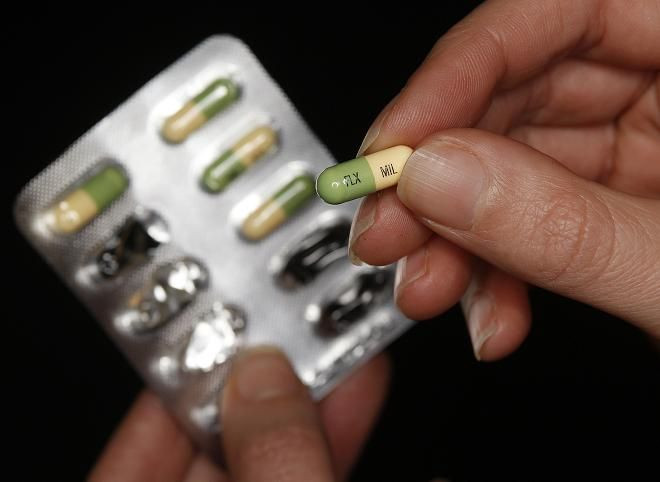Antidepressants Safe On Babies During Pregnancy

Soon-to-be moms won't have to worry about taking antidepressants while pregnant. New study shows treatment for depression during pregnancy does not impact an infant's growth.
"Most women want to know about the effect of their depressive illness or the medication they take during pregnancy not only on the infant at birth, but also on the baby's longer-term growth and development," Katherine Wisner, lead author at Northwestern University medicine, said. "This information may help women balance the risks and benefits of continuing their antidepressant treatment during pregnancy."
A widespread concern among mothers was whether antidepressant medication have any lasting impacts on a child's development and then there was always a balancing act weighing the risks and benefits of antidepressents for the mother and child.
Researchers evaluated 174 pregnant women, out of which 46 took selective serotonin reuptake inhibitor, SSRI, antidepressants, whereas the remaining women who do or don't have major depression were off SSRI.
The mothers who took antidepressants had shorter babies at birth, but after 2 weeks that difference disappeared when compared to mothers who were off the medication. The infants whose mothers were depressed and not taking medication were also the same size as those in the population.
Currently, a number of optional antidepressants could be bought for pregnant women struggling with depression, according to the Mayo Clinic, including:
- Tricyclic antidepressents-Sold as Pamelor. These capsules increase levels of norepinephrine and serotonin and restore the balance of neurotransmitters associated with depression
- Certain SSRIs-Also change the balance of chemicals in the brain, mostly serotonin. They're considered the general option for antidepressants and sold as Celexa, Prozac and Zoloft.
- Bupropion-Also called Wellbutrin and is used for depression and smoking cessation. While it's not the first option for pregnant women most used it to quit smoking and if they did not respond to other medications.
The study was released online on March 20 and will be published in upcoming American Journal of Psychiatry.
Published by Medicaldaily.com



























